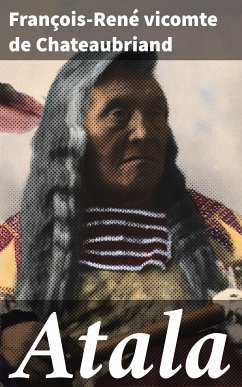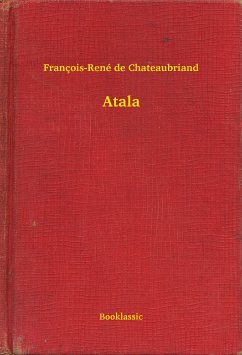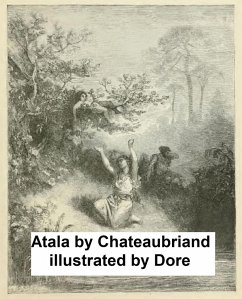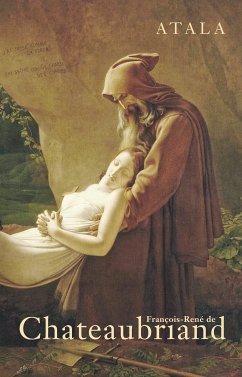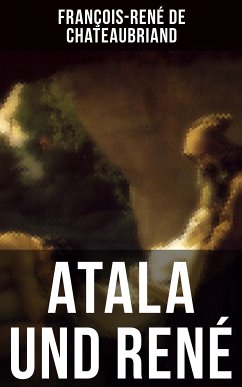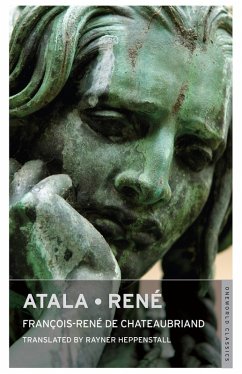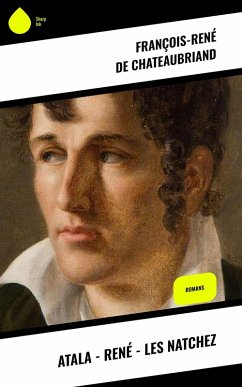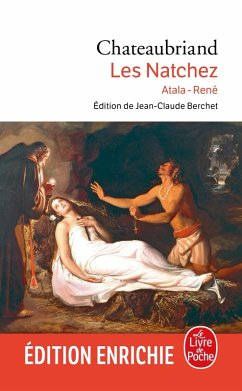
Atala (eBook, ePUB)

PAYBACK Punkte
0 °P sammeln!
In "Atala," François-René vicomte de Chateaubriand weaves a poignant tale of love, faith, and sacrifice set against the backdrop of the American wilderness. Written in the early 19th century, this novella exemplifies the romantic literary style characterized by its emotive language and exploration of human passions. The narrative follows the tragic romance between a Native American woman, Atala, and a Frenchman, Chactas, as they confront their intertwined fates in a world shaped by cultural conflict and the quest for spiritual salvation. The lush descriptions and philosophical reflections in...
In "Atala," François-René vicomte de Chateaubriand weaves a poignant tale of love, faith, and sacrifice set against the backdrop of the American wilderness. Written in the early 19th century, this novella exemplifies the romantic literary style characterized by its emotive language and exploration of human passions. The narrative follows the tragic romance between a Native American woman, Atala, and a Frenchman, Chactas, as they confront their intertwined fates in a world shaped by cultural conflict and the quest for spiritual salvation. The lush descriptions and philosophical reflections invite readers to consider the interplay of nature and inner turmoil, positioning "Atala" as a seminal work in the Romantic literary movement, illuminating themes of existential struggle and the search for identity in an increasingly modern world. Chateaubriand, a pivotal figure in French literature, was deeply influenced by his experiences in North America and his encounters with its landscapes and peoples. His own tumultuous life, marked by political exile and personal loss, informs the emotional depth of "Atala," as he grapples with the tensions between civilization and nature, faith and reason. Chateaubriand's autobiographical elements imbue the novella with a sense of authenticity, enhancing its exploration of complex themes about human desire and the redemptive power of love. "Atala" is highly recommended for readers seeking a profound introspection into the human condition within a richly evocative setting. Chateaubriand masterfully captures the essence of romanticism, inviting readers to reflect on the universal themes of love, loyalty, and the sacrifices we make for those we cherish. This novella not only stands as an artistic achievement but also as a significant commentary on the historical and cultural landscapes of its time.
Dieser Download kann aus rechtlichen Gründen nur mit Rechnungsadresse in A, B, BG, CY, CZ, D, DK, EW, E, FIN, F, GR, H, IRL, I, LT, L, LR, M, NL, PL, P, R, S, SLO, SK ausgeliefert werden.




